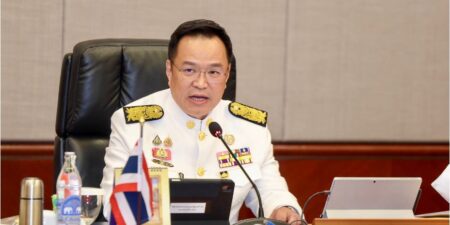The BGA Taiwan team, led by Senior Adviser Rupert Hammond-Chambers, wrote an update to clients on Taiwan’s fall 2025 legislative session.
Context
- Taiwan’s fall 2025 Legislative Yuan session opened September 19 amid an ongoing post-recall standoff between the ruling and opposition camps. Although the ruling Democratic Progressive Party (DPP) has signaled a willingness to talk, it has largely remained superficial. The two opposition parties, Kuomintang (KMT) and Taiwan People’s Party (TPP), have shown little inclination to compromise. If negotiations on the budget and priority bills fail to produce consensus, the new initiatives of President Lai Ching-te’s administration will be delayed, hindering policy implementation.
- Serious flaws in last year’s fiscal revenue-sharing amendments have reduced local government income. Meanwhile, the political fight over accountability for recent typhoon flooding in Hualien will further inflame partisan tensions, extending to the legislature. Additional unresolved controversies include restoring the prereform pension system, absentee voting, personnel confirmations at the National Communications Commission and referendum rules. Overall, nonpoliticized bills are still expected to pass as long as they are not derailed by physical confrontations or crowded out by budget review, although timelines may slip.
Significance
- During the session focused on budget reviews, committees are required to allocate significant time for scrutinizing the budget, while the broader political deadlock continues. With two special budgets also under consideration, important bills — including a potential U.S.-Taiwan tariff agreement in the second half of the year — may face delays due to the budget review process.
- On the annual budget, the opposition aims to avoid a repeat of last year’s chaotic review by tightening discipline and procedure. Freezes and cuts will likely remain sizable, but more targeted. Beyond the annual budget, the Legislative Yuan is expected to review a resilience special budget (因應國際情勢強化經濟社會及國土安全韌性特別條例草案) — framed to address tariffs and selected defense and coast guard items — and a not-yet-public defense procurement special budget totaling more than TWD 1 trillion (US$32.8 billion). These are unlikely to face outright obstruction, but stricter oversight mechanisms may be added.
Implications
- The KMT and TPP’s publicly announced priorities — such as restoring the old pension system, revising the fiscal revenue-sharing law, and absentee voting — are less directly relevant to most clients, but their high political salience means they will remain flashpoints outside the budget fight.
- Of the 27 priority bills the Executive Yuan has internally listed, those most relevant to clients include the following:
- The Artificial Intelligence (AI) Basic Act (人工智慧基本法) is a conceptual governance framework with limited hard restrictions. It will likely pass this session.
- The Act to Promote Data Innovation and Use (促進資料創新利用發展條例) complements the AI Basic Act by framing protections and use for AI-derived personal data.
- The Occupational Safety and Health Act (職業安全衛生法) adds provisions against workforce bullying and brings delivery platforms and couriers under regulation.
- The Tobacco Hazards Prevention Act (菸害防制法) tightens rules and penalties for tobacco advertising on online platforms.
- Seven undersea cable protection bills establish penalties and preventive measures against damage, bolstering communications and digital resilience.
We will continue to keep you updated on developments in Taiwan. If you have any comments or questions, please contact BGA Taiwan Senior Adviser Rupert Hammond-Chambers at rupertjhc@bowergroupasia.com .
Best regards,
BGA Taiwan Team

Senior Advisor
Rupert is an expert on Taiwanese political and economic issues and additionally brings a special focus on defense and security within BGA. Rupert concurrently leads the U.S.-Taiwan Business Council, where he was elected vice president in 1998 and president in 2000. Prior to 1994, he served as an associate for development at the Center for Security Policy, a defense and foreign policy think tank in Washington, D.C. Rupert is a member of the board of The Project 2049 Institute. He is also a trustee of Fettes College and is a member of the National Committee on United States-China Relations. Rupert ...
Read More


























